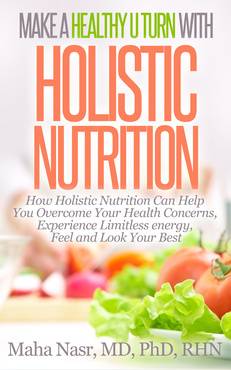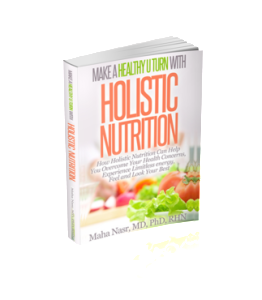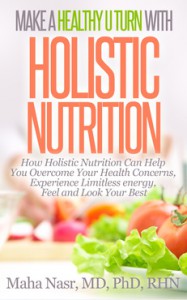Fasting is one of the oldest natural healing therapies that has long been used for religious and spiritual purposes to cleanse and strengthen the body and spirit. Fasting gives the body a period of rest from digestion and dealing with continuous intake of toxins. This allows the body to focus on waste elimination and repair processes.
Fasting can provide long term relief from chronic health problems particularly obesity, atherosclerosis, heart disease and high blood pressure, arthritis and skin problems. It can also unlock your physical energy and allow it to strengthen the emotional/mental and spiritual areas.
While weight loss is not the only goal of a fast, it is typical to lose weight on a fast. Breaking the fast properly is important to avoid weight gain after fasting due to the change in metabolism. To ensure a consistent weight loss, a fast should be combined with healthy eating habits and exercise.
There are different fasting methods described which include the water fast, the juice fast and lately the popular intermittent fast. The water fast is an intense fast in which only water is consumed for days or weeks while the juice fast is a variation of the water fast where fruit or vegetable juices are consumed instead of water. This causes less severe reactions than the water fast and keeps the body nourished and strengthened during the fast.
Intermittent fasting is a form of fasting which might be new to you. It is now getting attention as a powerful tool to move your body into the fat burning mode and help you keep a healthy weight as well as prevent many chronic diseases including diabetes, heart disease and Alzheimer, reduce inflammation and slow down the aging process.There is evidence suggesting that intermittent fasting may have beneficial effects on the health and longevity of animals—including humans—that are similar to the effects of calorie restriction (which is not easy to implement for most people).
Intermittent fasting is originally defined as a pattern of eating that alternates between periods of fasting (usually meaning consumption of water and sometimes low-calorie drinks) and non-fasting.There are different variations of intermittent fasting as a dietary regimen, in which the fasting period may vary ranging from days to hours (16-18 hours daily).
One version of intermittent fasting is to consume limited calories (e.g., 20% of normal) on fasting days. Fasting may be done either alternately (one day fasting, one day feeding) or by fasting two or more days per week.
Another version of intermittent fasting is simply to restrict your daily eating to a specific window of time. Zinczenko and Moore coauthors of the “8-Hour Diet” recommend an eight hour window. During those 16 hours you can consume zero-calorie fluids such as water, coffee or tea or fat-free broths. These 16 calorie-free hours make your body burn-off all the glycogen calories stored in your liver. The authors state that, according to research, restricting the time period during which you eat makes your body burn more calories throughout the day. This accounts for weight loss and other health benefits claimed on this diet. A whole foods diet and a daily 8 minute exercise (before breaking the 16 hour fast) are recommended to reap full benefits of the fast.
Dr Josef Mercola, the alternative medicine guru, is one of the advocates of intermittent fasting as a lifestyle that can help you live a longer, healthier life. Dr Mercola reported that he is currently restricting his eating to a 6-7 hour window each day after experimenting with different types of scheduled eating for the past two years. He adds that you’re not required to restrict the amount of food you eat when on this type of diet. He stresses that it is important to fast for at least 16 hours, because it takes about six to eight hours for your body to metabolize glycogen stores; after that one starts to shift to burning fat. After several weeks your body shifts to the fat burning mode and your cravings disappear.
If you are considering intermittent fasting to lose weight or prevent disease, you have to keep in mind certain rules so as to avoid ending up with the opposite results. Eating the right foods when you break the fast as well regular exercise is key to achieve results. A whole foods diet including lean protein, whole grains, healthy fats and plenty of fruits and vegetables plus avoiding sugar, bad fats and junk food is recommended.
Whether you choose to fast once a year, once or twice a week or on a daily basis, it is important to choose the fasting method that suits your body needs, health condition and health goals. It is not recommended to fast on water alone as this can release toxins too quickly for your body to handle.
Whenever you fast for more than three days, do so only under the supervision of a qualified holistic nutritionist. Fasting is not recommended for children, pregnant or lactating women, malnourished or underweight individuals and those who have hypoglycemia, diabetes or another chronic health condition or are taking certain medications.
We offer tele-health coaching via Zoom, so we can help you if you are out of area. If you need help with your health and nutrition, sign up for a 15 Min Discovery Call with Registered Holistic Nutritionist and Certified Life Coach, Maha Nasr to discuss your current goals and concerns and ask how we she can help you.
If you find this information useful, please feel free to share with your family or friends.
References
Encyclopedia of natural healing, Zoltan Rona, MD, MSc
The new detox diet, Elson M. has, MD
Wikipedia.com, Intermittent fasting
The 8-Hour Diet, David Zinczenko and Peter Moore
Dr Mercola.com, What the science says about intermittent fasting




